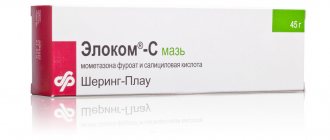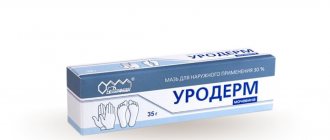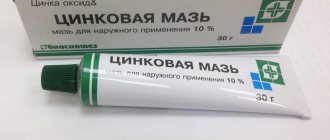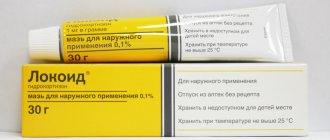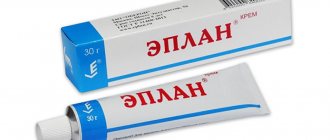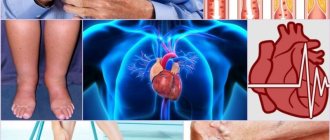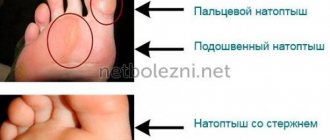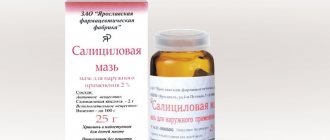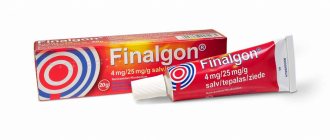Gevkamen belongs to a group of pharmacological drugs used externally to relieve pain in muscles or joints. This medicine has a combined herbal composition. The therapeutic effect of the ointment is explained by the body's reflex reactivity to irritation of subcutaneous receptors and nerve endings. The product exhibits a distracting, locally irritating and slight anesthetic effect.
Pharmacological properties
The therapeutic effect of Gevkamen is due to the action of the plant and chemical components that make up its composition. The ointment affects nerve receptors, increases the lumen of capillaries and arterioles, exhibiting analgesic and distracting properties.
The drug compacts the membranes of skin cells and reduces their exudation. Immediately after applying this product to the affected area, irritation occurs at the site of its application, which is expressed in the appearance of redness, swelling and burning of the epidermis. After 30 minutes, the effect of Gevkamen becomes analgesic and anti-inflammatory in nature. The therapeutic effect of the ointment extends to the deep layers of tissue and muscles.
Gevkamen ointment for external use. approx. 25g tube No. 1
Trade name: Gavkamen. Dosage form: ointment for external use. Composition: each tube contains: levomenthol - 4.5 g; racemic camphor - 2.5 g; eucalyptus oil - 2.5 g; clove oil - 0.25 g, hard petroleum paraffin, soft white paraffin.
Description: ointment of white or white with a yellowish tint, with a characteristic odor. Pharmacotherapeutic group: means for external use for pain in joints and muscles.
Indications for use: Distractive and analgesic for muscle and joint pain.
Contraindications Hypersensitivity to essential oils of mint, clove, eucalyptus, plants of the myrtle family; violations of the integrity of the skin; children up to 12 years of age.
Method of administration and dose. The ointment is applied to painful areas of the skin in the area of the affected joint or muscle 2-3 times a day, 2-4 g (corresponds to a strip of ointment 2-4 cm long), lightly massage the area where the ointment is applied. The course of treatment depends on the severity and course of the disease and the nature of concomitant therapy.
Side effects From the nervous system: when applying the ointment to damaged skin, it may be absorbed and develop headache, ataxia, disorientation - in severe cases, impaired consciousness, weakness. From the skin and subcutaneous fat: perianal itching, skin irritation, eczema in areas where the ointment is applied. From the digestive system: if the ointment is accidentally used internally, abdominal pain, nausea, vomiting occur. From the cardiovascular system: when applying the ointment to damaged skin, it may be absorbed and develop palpitations, bradycardia, and heart rhythm disturbances. Allergic reactions: contact dermatitis, urticaria.
Special instructions When rubbed into the skin, Gevkamen causes sensations of cold, then warmth, mild burning and tingling. Avoid contact of the ointment with the eyes and mucous membranes. Do not apply the ointment to damaged skin. After each use of the ointment, wash your hands thoroughly. In case of severe skin irritation, rubbing should be stopped. Use during pregnancy and breastfeeding Use with caution during pregnancy and breastfeeding, taking into account the risk/benefit ratio. Effect on the ability to drive vehicles or other machinery There is no data on the effect on the ability to drive a car or potentially dangerous equipment.
Packaging: in tubes of 25 g. Each tube together, with an insert in a pack. Shelf life: 3 years. Do not use the medicine after the expiration date. Storage conditions: at a temperature not exceeding 25 C. Keep out of the reach of children. Conditions for dispensing from pharmacies: without a prescription.
Indications
Gevkamen should be used in the presence of the following pathologies:
- different forms of myalgia;
- degenerative lesions of the musculoskeletal system of the body (for example, with arthralgia, deforming osteoarthritis of the spine and peripheral joints);
- tension headache;
- post-traumatic inflammatory reactions affecting joints, tendons, muscles or ligaments (bruise, sprain, overuse, sports injuries);
- various types of neuralgia.
Dosage and method of application of the ointment
The medicine is applied to cleansed and dry skin, only if there is no damage to its integrity. The medication is distributed over the surface of the epidermis of the damaged area or at the site of inflammation in an even layer. After applying the ointment, this area should be gently massaged with your hand until the drug is completely absorbed, as evidenced by coldness and a slight burning sensation of the skin. Then it is recommended to wash your hands (of course, if this part of the body does not need treatment).
Gevkamen in adults or children (from 12 years old) is prescribed based on the size of the affected area (organ) from 2 to 4 g of ointment. This is a strip of medication 3-4 cm long, or a volume of medication corresponding to the size of a cherry or walnut. This amount of gel is enough to treat the sacral area or knee joint with an area of 400 to 800 cm2. Application should be repeated 3-4 times a day. The maximum permissible dose of the drug per day is 8 g. Treatment lasts 3-5 days, if desired, the course of therapy can be repeated after 3 days.
Gevkamen 25 g ointment in tube
Instructions for medical use of the drug OINTMENT "GEVKAMEN" Trade name Ointment "Gevkamen" International nonproprietary name No Dosage form Ointment Composition 25 g of ointment contains active substances: racemic menthol in terms of dl-menthol or l-menthol - 18.0 g racemic camphor – 10.0 g eucalyptus oil – 10.0 g excipients: distilled clove oil, medical paraffin, medical vaseline. Description Ointment of white or white with a yellowish tint, with a characteristic odor. Pharmacotherapeutic group Agents for external use for pain in joints and muscles. Other means. ATC code M02AX10 Pharmacological properties Pharmacokinetics After application to intact skin under an occlusive dressing, it is absorbed at an average rate of 0.2-2.8 mm/h. Systemic absorption is less than 0.1%. 8 hours after application of 8 g of ointment under an occlusive dressing, the level of camphor in the blood plasma is 41.0±5.8 ng/ml and is achieved after 5.6±1.3 hours; menthol is 31.9±8.8 ng/ml and is achieved after 4.7±5.4 hours. When applied at a dose of 4 g, the levels of camphor and menthol are 26.8±7.2 ng/ml and 19.0±5 .4 ng/ml, respectively. After application in an amount of 2 g, camphor and menthol are not detected in the systemic circulation. The absorbed part of the terpene components of the ointment is further oxidized by the liver cytochrome system to form hydroxy derivatives, which are then conjugated with glucuronic acid and excreted in the urine (41.1-47.7%) and the secretions of the mucous glands. Less than 0.014% of the entire dose of ointment applied to the skin surface is released unchanged. Pharmacodynamics Gevkamen ointment has a pronounced local irritating and distracting effect, and a weak local anti-inflammatory effect. The effect of gevkamen is due to the content of essential oils and terpene derivatives (camphor and menthol) included in the ointment. The main active components of clove oil are eugenol (60-95%), its acetic ester (2-27%) and caryophyllenes (5-10%). The main active components of eucalyptus oil are 1,8-cineole (54-95%), α-pinene (2.6%), p-cymene (2.7%). Terpene derivatives stimulate cold and pain receptors in the contact area, producing an irritating effect. Eugenol at concentrations of 3.3-16.4 μg/ml and components of eucalyptus essential oil at a concentration of 5.8 μg/ml inhibit the activity of cyclooxygenase types I and II, as well as lipoxygenase. As a result, the reactions of the arachidonic cascade of eicosanoid synthesis are blocked and the formation of prostaglandins, thromboxane and leukotrienes at the site of inflammation is disrupted. Immediately after application of the ointment, its irritating effect appears in the form of a burning sensation, hyperemia and swelling at the site of application of the medicine. It is associated both with the direct activation of pain receptors in the tissue by the irritating components of the ointment, and with the release of inflammatory mediators (histamine, serotonin, bradykinin) from the depot under their influence. These mediators increase the sensitivity of receptors to pain stimuli and cause vasodilation, thereby increasing blood flow in the vessels of soft tissues and skeletal muscles, and stimulating regeneration processes. The anti-inflammatory and analgesic effect of the ointment appears approximately 0.5 hours after application. Application to the frontotemporal region and paravertebral areas of the neck helps relax the neck muscles and reduces the severity of tension headaches and cluster headaches within 15 minutes after application. When applied topically, it weakens the carcinogenic effect of benzopyrene on the skin. Indications for use - as part of complex therapy for degenerative diseases of the spine: osteoarthrosis, osteoarthropathy - post-traumatic inflammation of tendons, ligaments, muscles and joints (sprains, sports injuries, overload, bruises) - neuralgia, myalgia, arthralgia - tension headaches and cluster headaches . Directions for use and dosage: The drug is applied to a clean, dry surface of intact skin. The ointment is evenly distributed over the surface of the skin in the area of the painful area, after which the area where the ointment is applied is lightly massaged with your hand until a slight burning or cooling sensation appears. Hands should be washed after application (unless the area is not being treated). Adults and children over 12 years of age are prescribed depending on the size of the painful area (organ). On an area of 400-800 cm2 (corresponding to the surface of the knee joint and sacrum), 2-4 g of ointment should be applied (corresponding to a strip of ointment 2-4 cm long). Applications are repeated 3-4 times a day. The maximum daily dose is 8 g (a strip of ointment 8 cm long). The duration of the course of treatment is 3-5 days; if necessary, courses are repeated at intervals of 2-3 days. Side effects - allergic skin reactions (burning, hyperemia), itching in the area of application - skin irritation, eczema - palpitations, bradycardia Contraindications - children under 12 years of age - hypersensitivity to essential oils of mint, cloves, eucalyptus, plants of the myrtle family. Drug interactions Due to the low systemic absorption of gevkamen ointment, the risk of drug interactions is low. However, it should be remembered that the terpene components included in the drug are inducers of microsomal liver enzymes that metabolize other drugs. Therefore, there is a possibility of weakening the effect of other drugs used in conjunction with gevkamen. When used simultaneously with non-steroidal anti-inflammatory drugs for topical use, it enhances their effect and increases the depth of penetration into soft tissue in the area of application. Dimethyl sulfoxide, when applied simultaneously with gevkamen ointment, enhances the systemic absorption of the essential oil components included in its composition and increases the depth of penetration into the soft tissues in the application area. Special instructions Pregnancy and lactation Despite the minimal systemic absorption of gevkamen, the use of ointment during pregnancy and lactation is possible only after a careful assessment of the expected benefit to the mother and the possible risk to the child or fetus. Features of use Gevkamen ointment is intended for external use only. It is recommended to apply the drug only to intact skin, avoiding contact of the ointment with damaged areas and open wounds. Avoid contact of the drug with the face, mucous membranes of the mouth, eyes, vagina and rectum. Effect on the ability to drive vehicles and operate machinery Gevkamen ointment does not affect the ability to drive vehicles or operate machinery and other operator activities. Overdose An overdose of gevkamen when applied topically in the form of an ointment is unlikely, which is due to its low systemic absorption. The likelihood of developing an overdose increases with accidental or intentional use of the ointment internally (during the period 1981-1992, only 109 cases of intoxication of this kind were described). A typical clinical picture does not develop when gevkamen is taken orally. Possible symptoms: dizziness, heartburn, nausea, vomiting, bradycardia and decreased blood pressure, disorientation, confusion, muscle weakness, miosis, convulsions. Helpful measures include gastric lavage (if the ointment is taken orally), supportive and symptomatic therapy aimed at eliminating the problems that have arisen. There is no specific antidote. Release form and packaging: 25 g ointment in aluminum tubes. Each tube is in a cardboard box along with instructions (insert leaflet) for use. Storage conditions: Protected from light, at a temperature not exceeding 15°C. Keep out of the reach of children! Shelf life: 3 years Do not use after expiration date. Conditions for dispensing from pharmacies Without a prescription, Republic of Belarus. Minsk region, Borisov, st. Chapaeva, 64/27.
Side effects, contraindications
Gevkamen ointment can provoke the development of allergies, which manifests itself in the form of tingling of the skin, a burning sensation or coldness at the site of application.
The use of this product is contraindicated in the presence of the following disorders:
- individual intolerance to individual components of the drug;
- when the epidermis is damaged in the inflamed area;
- when symptoms of dermatological pathologies appear;
- children under 12 years old.
During pregnancy or lactation, Gevkamen can be used only with the permission of the appropriate specialist and only if the expected beneficial effect from its use exceeds the potential risk to the child or fetus.
Gevkamen ointment 25g No. 1
Name
Gevkamen ointment for narcotics in tubes 25g in pack No. 1
Storage conditions
At a temperature not exceeding 25° C. Keep out of the reach of children.
Expiration date from date of manufacture
3 years
Product description
Ointment for external use is white or white with a yellowish tint with a characteristic odor.
pharmachologic effect
Combined preparation of plant origin. The action is due to reflex reactions associated with irritation of the sensitive nerve endings of the skin and subcutaneous formations. It has a locally irritating (“distracting”), weak local anesthetic effect.
Indications for use
As a “distracting” local anesthetic for neuralgia, myalgia, arthralgia, myositis.
Use during pregnancy and lactation
The use of the drug during pregnancy and breastfeeding is possible taking into account the expected benefits for the mother and the potential risk for the fetus/child. You should consult your doctor.
special instructions
After applying the ointment, wash your hands thoroughly with soap and water. Avoid getting the ointment in the eyes and mucous membranes. If the drug gets into your eyes or mucous membranes, rinse them thoroughly with water and consult a doctor.
With caution (Precautions)
Ointment for external use is white or white with a yellowish tint with a characteristic odor.
Contraindications
levomenthol 18 g racemic synthetic camphor 10 g eucalyptus oil 10 g Excipients: clove oil 1 g, solid petroleum paraffin 30.5 g, petroleum jelly up to 100 g.
Directions for use and doses
Externally. A small amount of ointment should be applied to the painful area and rubbed into the skin with light massage movements. The procedure is carried out depending on the intensity of pain 2-3 times a day. After two weeks of using the drug, you should consult your doctor.
Overdose
To date, no cases of overdose have been reported with the use of the drug.
Side effect
Allergic reactions, burning, tingling, and a feeling of cold in the areas where the ointment is applied are possible.
Compound
100 g: Levomenthol 18 g, synthetic racemic camphor 10 g, eucalyptus oil 10 g. Excipients: clove oil 1 g, solid petroleum paraffin 30.5 g, petroleum jelly up to 100 g.
Interaction with other drugs
Not described.
Release form
Ointment for external use is white or white with a yellowish tint with a characteristic odor. 100 g levomenthol 18 g racemic synthetic camphor 10 g eucalyptus oil 10 g Excipients: clove oil 1 g, solid petroleum paraffin 30.5 g, petroleum jelly up to 100 g. 15 g - cans (1) - cardboard packs. 20 g - cans (1) - cardboard packs. 25 g - cans (1) - cardboard packs. 40 g - cans (1) - cardboard packs. 15 g - aluminum tubes (1) - cardboard packs. 20 g - aluminum tubes (1) - cardboard packs. 25 g - aluminum tubes (1) - cardboard packs. 40 g - aluminum tubes (1) - cardboard packs.
Overdose
It is almost impossible to exceed the permissible daily dose of the drug when using the ointment locally. Only oral use of the drug can provoke the appearance of signs of overdose. In this case, the following occurs:
- disturbance of consciousness;
- vomiting and nausea;
- dizziness;
- muscle weakness;
- arterial hypotension;
- heartburn;
- bradycardia;
- miosis;
- disorientation;
- convulsive attacks.
Drug interactions
Gevkamen is slightly absorbed by the body, so the likelihood of its interactions with drugs from other groups is extremely low.
In any case, you need to remember about the terpene substances that are part of this medicine. They stimulate liver microsomal enzymes, which can alter the metabolism of certain medications. Combined use of drugs from other groups with Gevkamen may reduce their effectiveness.
The simultaneous use of this ointment with nonsteroidal anti-inflammatory drugs with local application increases the beneficial effects of the latter, deepens and accelerates their entry into soft tissues.
Simultaneous application of dimethyl sulfoxide with Gevkamen can increase the absorption of its constituent components (for example, essential oils), increase the depth and effectiveness of their therapeutic effects.
